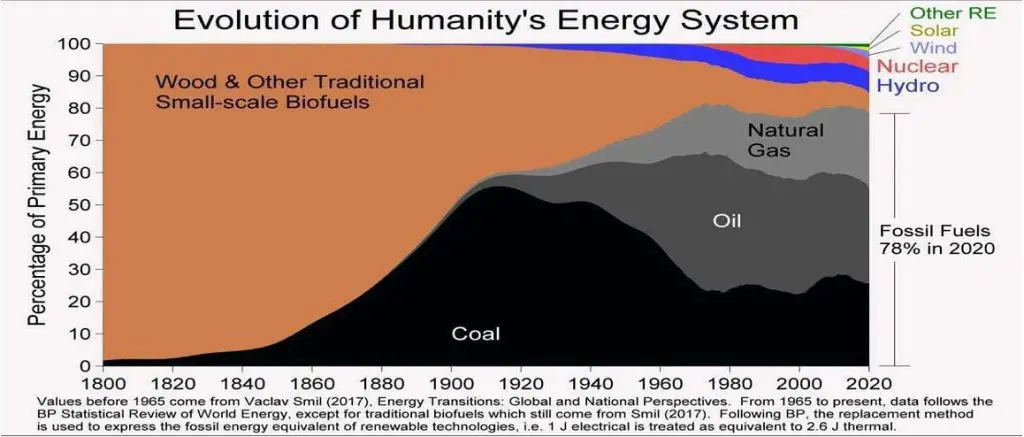“The Energy Transition is a concept that implies a cultural change and as such must be incorporated by humanity as a way of life. Cultural change depends on time and everyone’s acceptance, they must be integrated into our lifestyle and it is in this field that it must be analyzed. Are we willing to give up part of our lifestyle in order to sustain the transition? How many of us are willing to allocate a significant part of our income to support a transition that would involve impacts associated with energy costs between 50 and 100% higher than the current ones?”

US Secretary of Energy Jennifer Granholm expressed in the last Ceraweek: “We can walk and chew gum at the same time”. «I think we are on the cusp of the most important transition that society has ever seen» (Ceraweek 2022, Houston)
The SE of the USA has made a clear reference to a Copernican turn over on the Energy Transition strategy of the United States government. In that decision the Biden´s government, expresses a deep turn over from the political platform held on the presidential campaign about reducing investments in the production of fossil fuels, for now again, encourage investments in traditional energies for the medium and long term.
The previous decision had been promoted by an evident ignorance of the Energy industry and an improvisation, promoted by environmental groups that knew how to place on the front pages of the world’s media during the last 15 years, the idea that ¨the evil of all were the energies produced by fossil fuels¨ and that ¨the salvation of the planet was hand in hand with renewable energies¨.
Neither one nor the other and the reality is a fact, which puts us today in front of the obligation to change the Energy transition strategy and go back quickly to restore the operation of nuclear power plants, reopen coal mines, and look for a replacement of a Russia’s source of hydrocarbon supply.
If we carefully look the evolution graph of the world energy transition on the last 222 years we realize that the world went from the consumption of firewood (biomass) in 1800, to a multiple basic source of energy supply, to the present. We are now able to realize what Energy transition means and how long it takes to change from one source of energy to another. We may perceive the chances that one source of energy could be «entirely eliminated» as a basic Energy source and be replaced entirely by another. The Humanity have spent 222 years of energy transition from one class to another, without being this evolution having achieved the total elimination of firewood as one of its basic sources. We observe the way that coal, which at some point of the time was the basic source of supply to replace firewood, being gradually replaced by hydrocarbons in its weight on the world energy matrix supply. Nonetheless coal continues being one of the most important sources of basic Energy supply up to this days, to sustain the global energy demand.
The Energy Transition is a concept that implies a cultural change and as such must be incorporated by humanity as a way of life. Cultural change depends on time and everyone’s acceptance, they must be integrated into our lifestyle and it is in this field that it must be analyzed. Are we willing to give up part of our lifestyle in order to sustain the transition? How many of us are willing to allocate a significant part of our income to support a transition that would involve impacts associated with energy costs between 50 and 100% higher than the current ones
The outbreak of the war between Russia and Ukraine brought a violent reality shock to the world about the need to have reliable sources of primary energy supply and suppliers as reliable as the sources themselves. The war consequences over the population’s energy supply will be severe insofar as the economy of the countries, threatening the development achieved over the years mainly by the first world countries.
We could analyze the objectives sought by the different groups that mobilized the transition and carbon zero idea. We could assume that global warming is a problem only produced by a sole industry that in itself moves the world and generates billions of dollars, in addition to well-being and progress. Following the common sense, we should analyze that the environment is also a business, and as such generates billions of dollars, but that needs a demoniac counterpart to generate those billions, and the mobile in neither case is a philanthropic principle.
As an example, it could be said that the contamination of a single erupting volcano in one day generates, in proportion, values similar to the annual contamination of all the fossil fuel consumed in the world, but clearly these natural situations are unavoidable and unprofitable to be used as flags.
During the week of March 7 to 11, the highest representatives of energy companies and countries met in Houston in another version of Ceraweek. We were able to appreciate the general level of alert produced by the need to supply the current and future demand, and the growth in Energy prices of both inputs and futures of gas, oil and derivatives. The decision of the US government of President Biden to ask the O&G Companies to rapidly increase production and to Wall Street to provide the financing required by the companies to achieve the objective, puts on the world stage what the businessmen stated at the meeting in Houston about the bottlenecks to reach the target requested by the Political leaders.
We should consider that Energy supply is the coordination result of different groups in the society, among O&G Companies, Governments, Society and Financial Capital. One group without the other will not be able to achieve the objective. Now when we carry out a detailed analysis of each group, we see that clearly the times required between each of these groups are different and so are their urgencies. O&G companies require sustainability in decisions and in any case transcend the periods of each government. Governments have a limited mandate and must set state policies that transcend their mandate. Financing requires an investment recovery horizon that exceeds the terms of the other groups. In society, urgencies and demands have the immediacy of everyday life, and are clearly very far from the times required by others. What everyone should agree on is on the need for sustainable strategies. The basis of the Energy supply need of stable rules, not to be changed capriciously and according to the will of each individual group. The world leaders should understand the rules and times of each group knowing that one without the other would not reach the Transition target. The consequences of a lack of coordination would have catastrophic consequences for countries and their citizens.
The exit from the world´s pandemic finds us with difficulties in obtaining materials, trained labor, and equipment, among others. The increase in O&G production is not a simple decision from one day to the next, nor is it achieved by the sole will to do so. Although in the Energy industry, companies tend to deal with external factors that impact in their activity, none of them it is ready for a sudden increase in production when an alarm sounds, or an external factor generates a transitory punctual demand that raises prices in an unusual way that destabilizes the world energy market. Calculation’ errors in any of the pillars that support the Energy industry destabilize the industry as a whole.
What is seen in the near Energy supply future is a bleak of expectations that will particularly guide the future. The energy supply will travel a tortuous path influenced by decisions that directly impact in its development but that we can consider were not exclusively the product of the individual Energy industry decision. The Political intention to promote investments and the urgent needs of the first world countries should work as a trigger for the world political authorities to review strategies and adapt legislation in the search to promote a strong development of their energy resources. Leaders should set policies with a broad, sustainable vision that allows the O&G companies to become reliable Energy suppliers that provides the world’s Energy needs. Leaders also need to look for the planet and those regions that have been demanding attention for years, avoiding sectoral extreme opinions, that as such, are coming from minorities with particular bias interests, but projected to the world, cause tremendous damage to the majority of the societies and to the joint development of the nations.
Will our leaders rise to this challenge? New challenge requires the will and decision to fulfill the demands of people demanding better living conditions, and companies willing to try again.
“Hess Corporation CEO John Hess cited the IEA Net-Zero by 2050 report that said a net-zero future will require oil and gas investments of $450 billion a year for the next 10 years to stay on track” (Ceraweek March 2022)
Read the spanish version: ¿222 años de transición energética?


